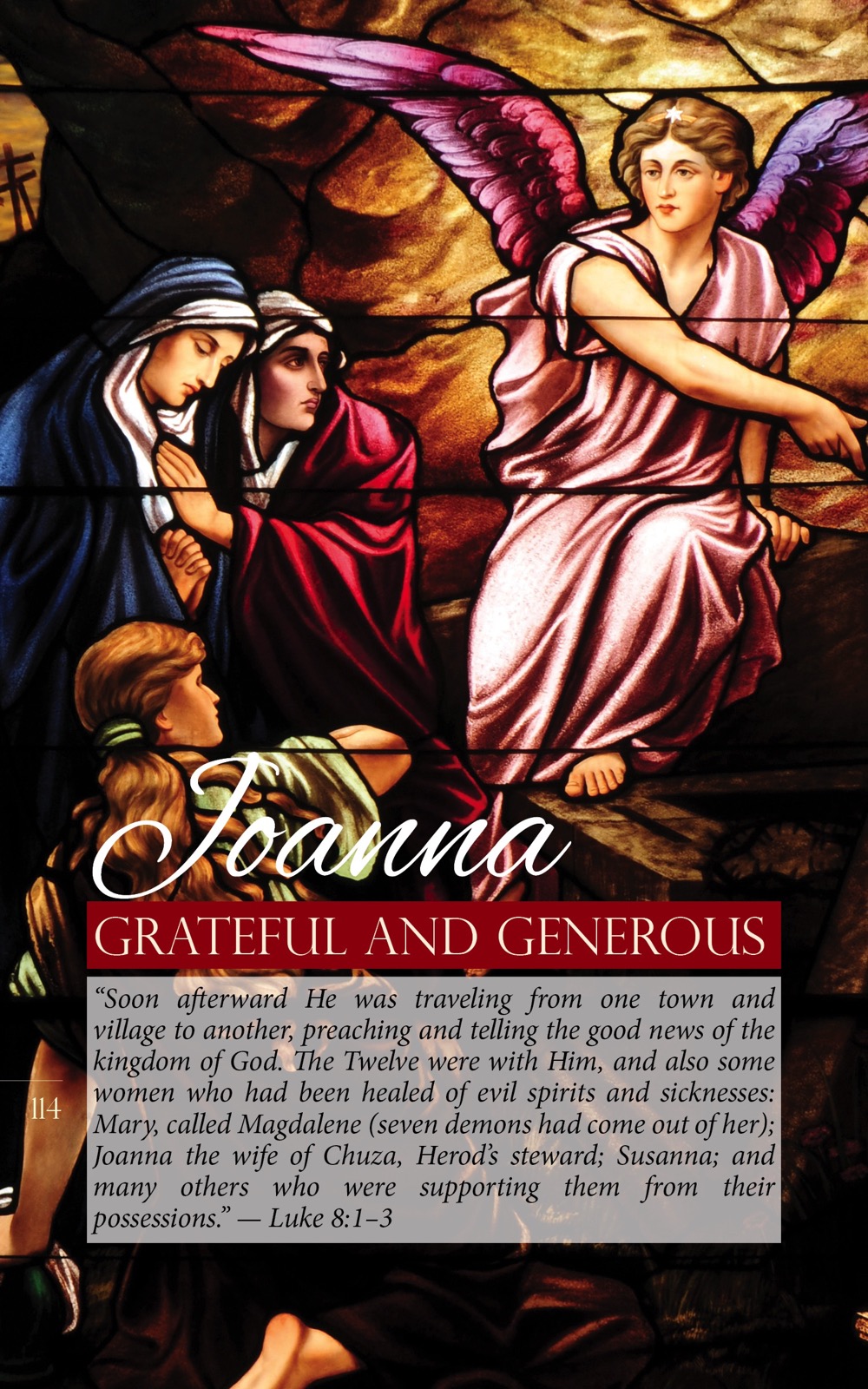
Joanna is mentioned by name only twice in the New Testament. Both occurrences are in the Gospel of Luke.
In Luke 8, we learn that Joanna was the wife of Chuza, a prominent man in the employ of none other than the notorious Herod Antipas. If that name doesn’t ring a bell, he was one of the sons of King Herod the Great (the ruler who tried to murder Jesus shortly after his birth). An-tipas inherited one-fourth of his father’s “kingdom,” thus his title “tetrarch” (Luke 3:1). During his life, Israel remained under the domination of Rome, meaning Herod Antipas’s rule was limited in scope. Even so, he wielded great political power across the Galilean and Perean portions of the Holy Land.
To rise to the position of Herod’s steward, Chuza had to have been extremely gifted and competent. Inherent in the title is the idea that Chuza enjoyed Herod’s full trust. Typically, a steward functioned like a personal assistant/business manager/right-hand man. Stewards typically oversaw a wealthy person’s property and holdings. In some cases, they even acted as a guardian or tutor of any children. Serving a top-ranking government leader in this capacity, Chuza would have enjoyed many perks. Chief among them would have been high compensation.
Because of Chuza’s position, Joanna enjoyed more advantages, luxuries, and connections than most women. Imagine the first-century, Jewish equivalent of the modern, high-society, country-club set—this was Joanna’s world.
But as we know, wealth and power are not enough to ward off the troubles of life. Those from the upper crust get sick. A-listers often see their lives come unglued. And so it was with Joanna. Either she suffered from some sort of serious medical malady or she (literally) battled demons in her soul.
We know this because Luke lists her among a group of women whose lives had been radically changed by Christ. Some of these had been healed physically. Others had been delivered from demonic oppression or even possession. Luke doesn’t tell us into which category Joanna fell.
The only thing we know for sure is that she was beyond grateful. Interestingly, the name Joanna means “Yahweh is a gracious giver.” Clearly, the day Jesus called Joanna by name and restored her was the day Joanna experienced the full implications of her name.

So thankful was she for the gift of total health (spiritual, physical, emotional) that she began dipping into her considerable financial assets to support his ministry efforts.
Did this cause tension at home or for her husband, Chuza, in his job? We don’t know. Luke tells us that for an unspecified period of time, Joanna and several other women with experiences like her own became part of Christ’s entourage. They traveled with Christ and the disciples “from one town and village to another” (Luke 8:1). Perhaps they shared their own personal testimonies of how Jesus had revolutionized their lives. Surely this caused eyebrows to rise and tongues to wag.
The only other mention of Joanna comes at the end of Luke’s Gospel. She was one of the women who went to the tomb of Christ early on Sunday to anoint his body with spices. Upon arrival, they found the tomb open and the body gone. That’s when they encountered “two men . . . in dazzling clothes” (Luke 24:4) who announced Christ’s resurrection.
After this, Joanna fades from view. Where did she go? What did she do? No one knows. But it’s safe to assume this grateful woman spent the rest of her days telling others of Yahweh’s gracious gift of Christ and Christ’s gracious gift of new life.
The Takeaway
One of the frequent charges leveled at Christianity is that it demeans women or at least denies them opportunities to use their strengths.
This surely wasn’t Joanna’s experience with Christ. After experiencing his gracious, healing touch, she became one of his most devoted followers. With obvious gratitude and enthusiasm, she generously shared her time, energy, and resources. At great risk (perhaps marital, certainly social), she told others about her experiences with Christ. She was an influential force in the spreading of the gospel.
Married or not, a member of elite social circles or not, you too can have an impact for Christ and his kingdom. Look for occasions to share your story. Look for opportunities to meet needs.
Food for Thought
- If you could have lunch with Joanna, what questions would you want to ask her about her life and experiences?
- In an era when a woman’s testimony was regarded as inferior to a man’s (if not invalid altogether), God revealed the resurrection of Jesus first to Joanna and her female friends. Why do you think God planned it that way?
- Joanna means “Yahweh is a gracious giver.” What are some of the gracious gifts God has blessed you with, and how could you better use or steward those for his eternal purposes?